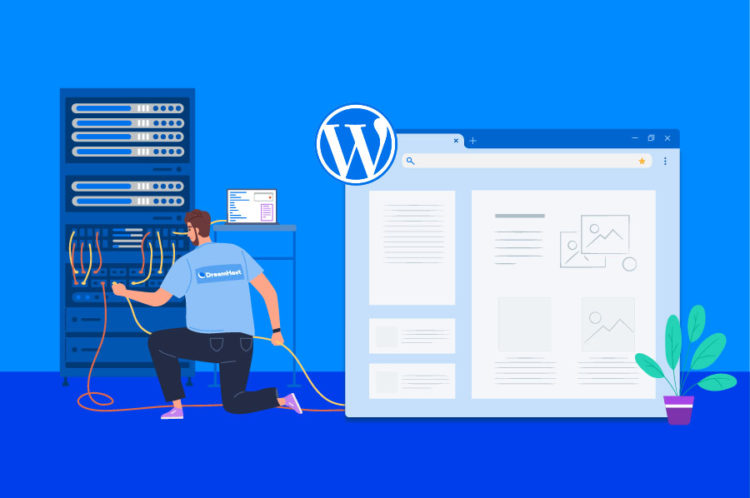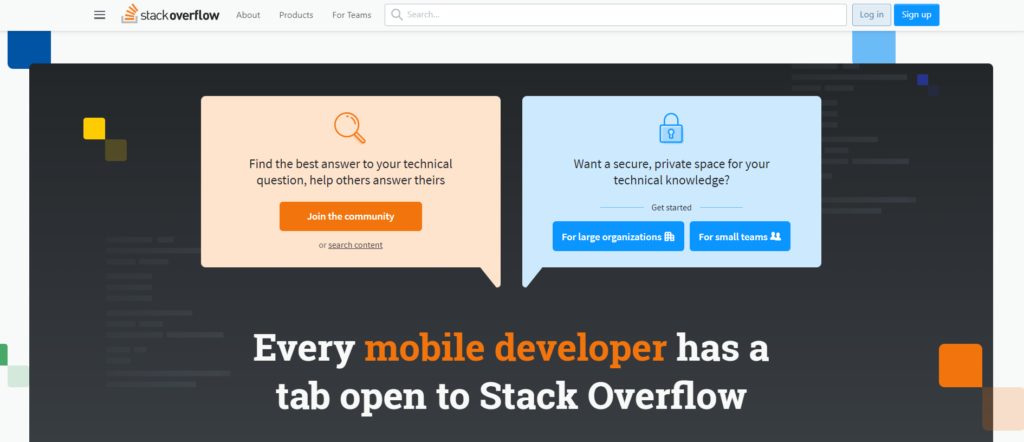
SaaS or software as a service is a cloud-based service that enables users to access an application through the internet. For providers, using SaaS offers many benefits, like low maintenance costs and easy accessibility. Some examples of the most popular SaaS products are Google Docs, Dropbox, and Netflix.
To make a SaaS model work, you’ll need good web hosting that can efficiently manage the data and web server. As a result, your business can grow and generate more users by using the right services.
In this article, we will discuss six criteria for choosing the best SaaS hosting for your business.
1. Understand Your Business Needs
While SaaS hosting providers offer a wide range of services, it is essential to identify your business needs and goals first, since the hosting service can affect your SaaS application performance.
For example, enterprise-level businesses may need web hosting with unlimited storage to upload and process a large number of files on the server. This is so their SaaS product’s performance won’t be compromised even if they publish large amounts of content.
Decide which services to migrate to an external provider by analyzing the resources you need to run your SaaS product. For example, consider the expected amount of traffic, estimated storage, and bandwidth usage. By doing so, you can determine the most suitable SaaS hosting platform that serves as an all-in-one solution.
It’s also important to determine whether you’ll need extra services like automated server backups, content management, a virtual private network (VPN), and a content delivery network (CDN), as they can be beneficial to deploying your SaaS product.
2. Hosting Provider’s Reputation
Having a reliable hosting provider is essential for your SaaS business since they will be responsible for maintaining the performance of your product. For that reason, always ensure that a hosting company has a good reputation before signing up for a plan.
The web host should also be able to support your tech stack and meet your business’ long-term requirements. This is so that when your product grows, the hosting plan can scale with it.
The best way to find a good web hosting service is by doing research. First, search for hosting providers that have experience working with SaaS companies. Next, look up real customer reviews on social media or online forums.

For instance, search up comprehensive testimonials or comparison blog articles and identify the pros and cons of each hosting provider. Additionally, you can inquire about the best SaaS hosting provider on online forums such as Stack Overflow, Techist, or Techweez forums.
3. Performance and Scalability
When choosing a SaaS hosting option, performance and scalability are two key factors.
The performance of your SaaS product’s hosting determines how fast the product can be deployed and how reliable the network is. These also affect your SaaS business’ SEO strategy, as speed and performance are now considered ranking factors.
For that reason, it’s ideal to find hosting companies that have data centers around the world so that your SaaS product has high-speed performance regardless of the location it is accessed from.
Scalability is also vital for long-term success. For example, when your SaaS apps generate high traffic daily, your current hosting plan may not be able to handle all that data and maintain performance. Therefore, having scalable SaaS resources and being able to transfer to a different hosting plan once you outgrow the current one is essential to growing your business.
One of the best solutions for advanced performance and scalability is to use a hybrid cloud approach. This is where you have the flexibility to create a customized solution for your business needs.
4. Security
In general, around 93% of users are concerned about the data security of SaaS applications since most SaaS products process sensitive data, like personally identifiable information or credit card numbers, which are vulnerable to exploitation.
Therefore, choosing the right SaaS hosting with robust security measures is crucial to secure your data and customers’ data from cyber threats.
Before choosing a hosting provider, define your security goals based on your industry and the type of information you process. For instance, if your product works with sensitive data, like passwords and clients’ addresses, public cloud hosting may not sufficiently protect your business.
Many SaaS hosting providers offer different security measures to which you should pay attention, such as PCI and HIPAA compliance certifications, TLS/SSL certificates, malware scanning, data recovery, user authentication, firewalls, and DDoS attack prevention.
5. Service-Level Agreement
Another criteria you need to consider is a service-level agreement (SLA). Having a clearly outlined service agreement with your hosting provider is vital and read all the points carefully. With this agreement, you can ensure that your service provider has a mechanism to resolve any issue that occurs on your SaaS app.
Before signing the agreement, make sure to discuss the following points:
- Uptime guarantee. To prevent downtime that can make visitors abandon your site, your hosting provider should provide at least a 99.9% uptime guarantee.
- Performance reporting. Make sure that your SaaS vendor can deliver performance metrics and status reports for proper performance monitoring.
- Define penalties. In case you experience downtime or system failures, it is crucial to outline specific penalties for SLA non-compliance to ensure you’ll receive compensation for potential monetary loss.
- Safe termination. In case of SLA non-compliance, you should have an agreement termination option without any penalty.
6. Budget and Hosting Options
The last factor that will help you find the perfect SaaS hosting provider for your product is the pricing.
Whether you are using a high-cost or low-cost third-party SaaS provider, always choose a hosting service option that suits your budget so that you can control business expenses and maximize profits.
A rule of thumb is to avoid paying for a hosting plan offering comprehensive resources that you won’t end up needing. For instance, using a hosting provider that offers cost-effective scalability is the best option if you have a small business.
Here are the three main SaaS hosting options available:
- Shared hosting – a server will host multiple websites, which means your site will share resources such as CPU, memory, and disk space with other users. It is the most affordable option and is suitable for small businesses.
- Dedicated hosting – an entire server dedicates hosting resources to a single client. The client has full control over the server, allowing them to customize hosting resources as needed. This option is suitable for large businesses that manage large amounts of data.
- Cloud hosting – a website or an application can use resources from multiple virtual servers, resulting in better performance than shared hosting. A business with a high-traffic project, like an eCommerce store or a social media platform, can benefit from this hosting service.
Conclusion
For SaaS providers, choosing the best web hosting can be challenging. The process can take time, from finding reputable SaaS hosting services to comparing their prices to suit your budget.
In this article, we’ve shared six interesting criteria to help you narrow down the right SaaS hosting provider:
-
Identify your business needs.
-
Find a hosting company with a good reputation.
-
Determine its scalability, speed, and performance.
-
Ensure your selected provider has an adequate level of security.
-
Consider the SLA carefully.
-
Find hosting services that suit your budget.
Hopefully, this article helps you determine the best hosting for your SaaS product. Good luck!





